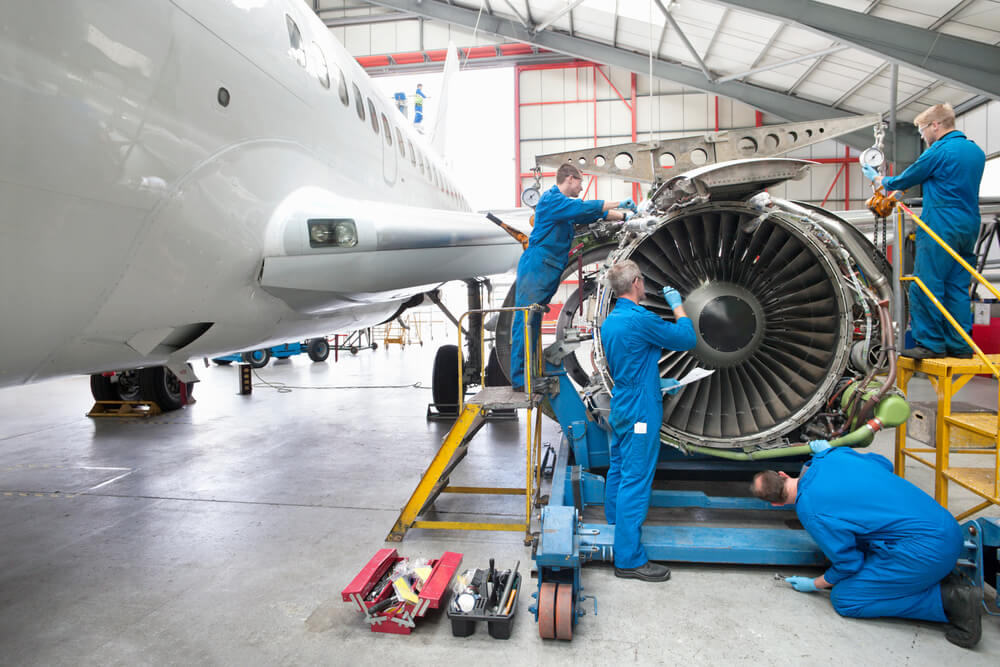What can you do with an Aircraft Engineering Degree?
A degree in aircraft engineering can provide you with skills applicable to many different industries, including technology, engineering, data safety and data sciences. You will have developed technical skills in engineering, mechanical science and data analysis that are highly valued by employers and can be transferable across many job roles.
Career options
Natural career paths following an aircraft engineering degree:
- University lecturer
- Aerospace technician
- Data analyst
- Aircraft Mechanic
- Inspection manager
- Technical sales engineer
- Mechanical engineer
- Aerospace engineer
- Data Engineer
Transferable skills career paths:
- Automotive engineer
- Control and instrumentation engineer
- Patent attorney
- Product designer
- Production manager
- Quality manager
- Sales Executive
- Technical sales engineer
These should only be used as a guide. Many employers will accept applications from students that have studied various degrees.
Work experience
Those wanting to find a career within aircraft engineering should investigate doing an industry placement – pre-entry work is valued highly. Your careers department at your university should be able to help you identify these. If your university course does not offer a placement year, you may want to consider doing part-time or summer work for an engineering or manufacturing company.
Experience in any kind of manufacturing, maintenance or related setting will help you to gain first-hand experience in the production process and provide you with an understanding of what a role in the industry will be like. It will also enable your application to stand out amongst your competition and provide you with the opportunity to network and build a list of contacts who may become useful in the future.
Typical employers
- Manufacturing hubs
- Civil Aviation Authority
- Armed forces
- Government research agencies
- Ministry of Deference
- Airline companies
- Space programmers
- Suppliers of raw materials and parts
Skills for your CV
Through your degree, you will learn various professional, technical and specialist skills such as design, control, systems, flight mechanics, aerodynamics, avionics, stress engineering, materials and structures and sustainable aircraft design. Alongside this, you will have developed additional skills which will be transferable. Make sure the following skills are highlighted on your CV:
- Work effectively in multinational teams.
- Use creativity and problem-solving skills to establish innovative solutions.
- Manage the design process and evaluate outcomes
- Develop economically viable, ethically sound and sustainable solutions
- Be numerate and computer literate
- Work accurately and with attention to detail
- Effectively communicate
- Show leadership and exercise responsibility
- Demonstrate project management skills
- Meet changing customer needs
Further study
Upon graduation, you may choose to do an MEng, which is an integrated additional year of study. This is popular amongst aircraft engineering graduates that want to specialise in a particular field; a separate Masters qualification will also help you achieve this.
If you are going straight into work, you will be required to undertake an additional study to achieve professional standards such as Incorporated or Chartered status through the Engineering Council.
What are aircraft engineer graduates doing?
The majority of aircraft engineer graduates are working as engineering professionals (34%). However, other popular career choices include science engineering and production, business associates, natural and social sciences and finance.
Related Courses
The MEng (Hons) / BEng (Hons) Aircraft Engineering has been designed in partnership with the aerospace industry and will provide you with the skills required to work effectively in the aircraft design, manufacturing, aerodynamic and structural design and repair and overhaul sectors.
BEng (Hons) Mechanical Engineering focuses on industry-relevant topics to reflect the needs of today’s employers, allowing you to build a successful career in the design, engineering and manufacturing sectors. You will gain knowledge of scientific and engineering principles and take a flexible approach towards new ideas and developments. You will hone your practical skills by using our industry-standard equipment and software for computer-aided engineering design, manufacture and analysis and failure investigations. Increased emphasis is placed on sustainable engineering – establishing you as an attractive candidate to prospective employers.


